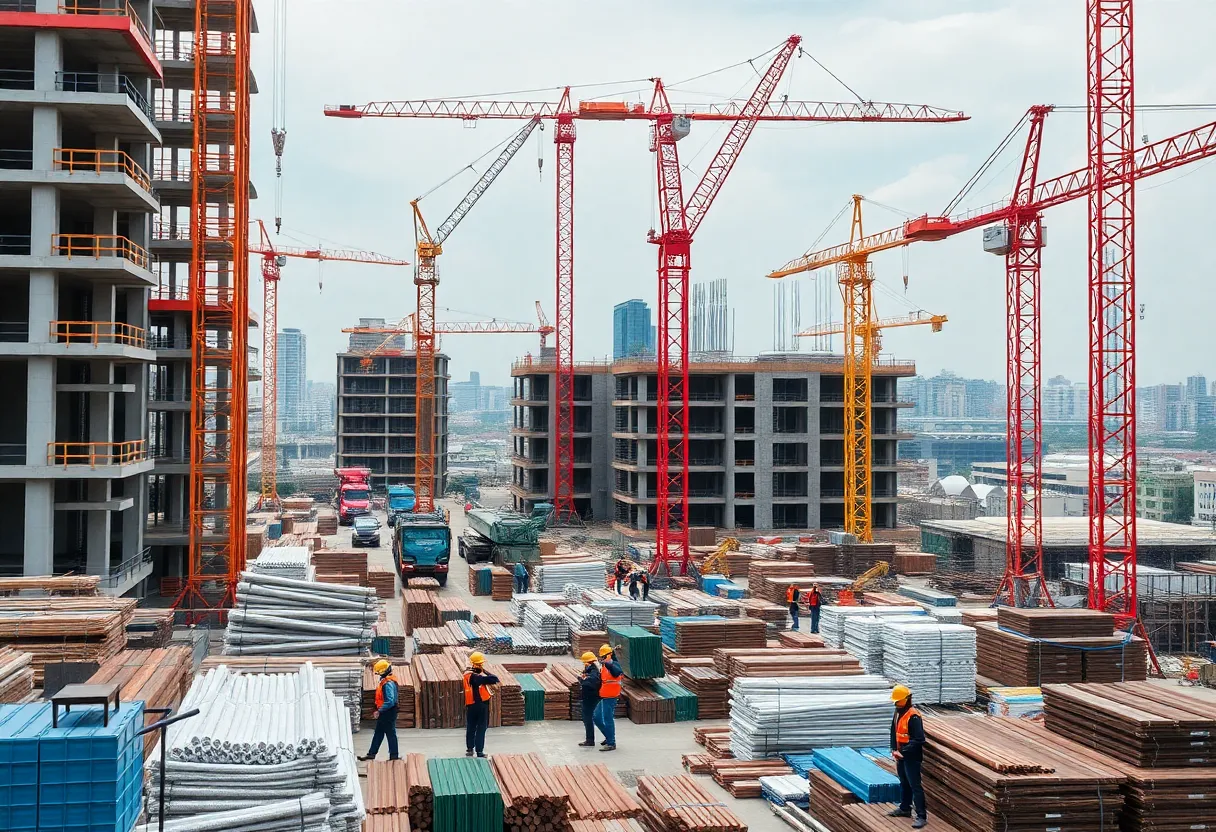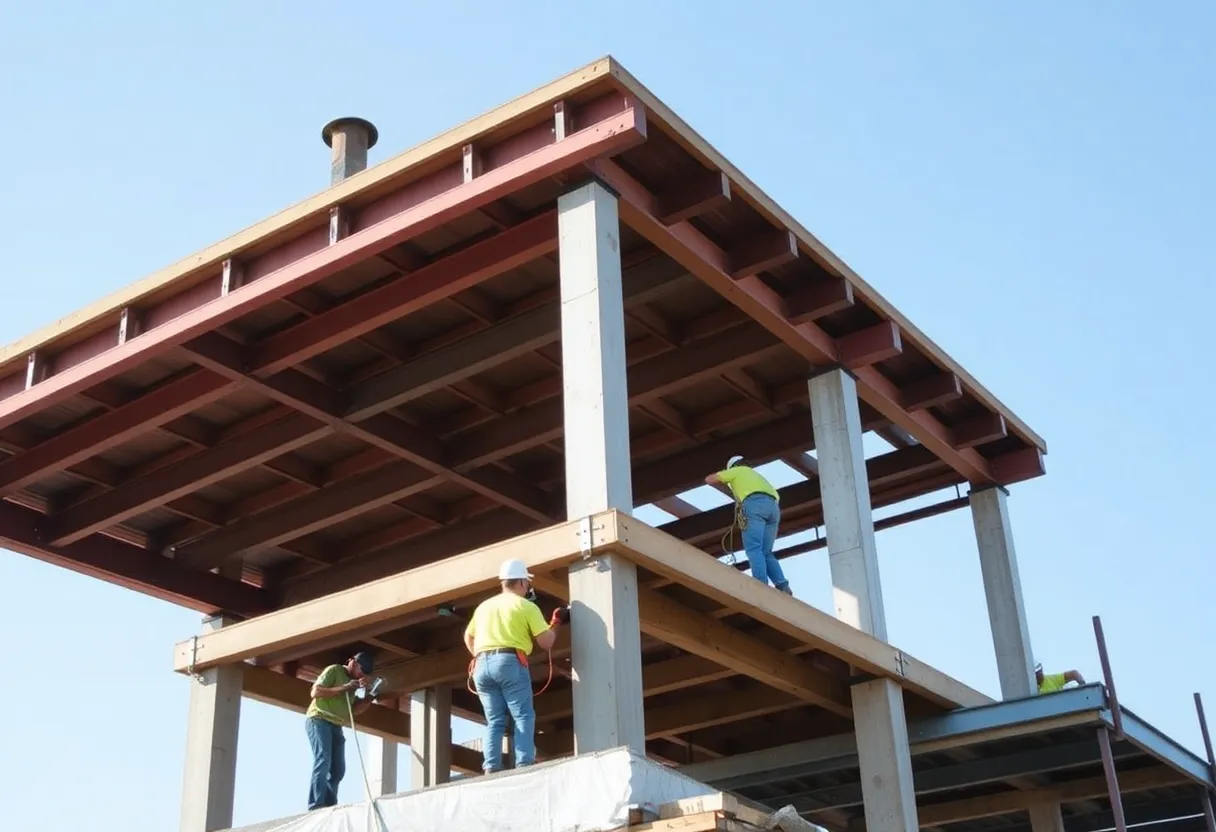News Summary
The construction industry is set to see a substantial investment surge, reaching $16.3 trillion by 2025. However, it struggles with productivity challenges, skill shortages, and supply chain disruptions. As various regions increase investment in infrastructure, labor shortages are projected to result in 250,000 unfilled job openings in the U.S. By addressing these challenges through strategic procurement and technological adoption, the industry can better position itself to executing upcoming projects successfully.
Global Construction Industry Faces Significant Challenges Amid Surge in Investment
The construction industry is poised for a remarkable investment surge, with global capital expenditure expected to reach $16.3 trillion by 2025. Despite this promising outlook, the industry is grappling with persistent challenges that affect its productivity and overall efficiency. Currently, construction contributes approximately 13% to the global GDP, but improvements in productivity growth remain limited.
Rising Investment Opportunities
As governments around the world allocate funds for infrastructure renewal, energy transitions, data centers, and advanced manufacturing technologies, the demand for construction services is skyrocketing. Notably, North America’s construction spending is anticipated to soar to $3 trillion by 2025, with stakeholders potentially facing a value at stake between $150 billion to $450 billion.
In addition to North America, several regions are significantly increasing their investment in construction. For instance, the European Union’s Chips Act plans to allocate over $50 billion towards semiconductor infrastructure. India is committing 3.3% of its GDP to infrastructure projects, while Saudi Arabia has laid out plans for $1.25 trillion in capital projects, establishing its aim to be a leading player in the construction sector.
Labor Shortages and Costs
While investments are rising, the U.S. construction industry faces daunting obstacles, primarily a shortage of skilled labor. As of late 2024, approximately 250,000 job openings are expected to remain unfilled, thereby leading to significant increases in labor costs. Labor productivity in construction has only increased by a stark 1% from 2000 to 2022, in stark contrast to 3% in manufacturing and 2% across the economy.
This labor shortage is not limited to direct craft roles but extends to supervisory positions as well. Consequently, construction companies are incurring heightened recruitment costs and grappling with recent wage growth of 16% for construction workers, thereby adding financial pressure on projects.
Supply Chain Challenges
Moreover, the construction industry is experiencing ongoing supply chain disruptions that have caused significant delays in material availability and increased costs for essential equipment. Fluctuations in material prices have been particularly marked, with costs for key materials such as steel and copper rising by over 30%. These supply chain issues necessitate project teams to dynamically adjust schedules and sources for suppliers, further complicating project delivery timelines.
Strategic Adjustments and Best Practices
In response to these ongoing challenges, construction companies are adopting strategic procurement practices, such as securing materials in advance and forming partnerships with major contractors. Implementing a robust contracting strategy, inclusive of advanced methodologies, is essential to minimize risks and enhance project efficiency.
Furthermore, the construction sector is encouraged to embrace digital transformation and technological advancements to improve operational workflows. Emerging trends such as smart construction and green building practices are gaining traction, catalyzed by regulatory pressures and shifting market demands. Increasing utilization of drones and automation technologies on-site is leading to enhanced safety measures and efficiency.
Future Outlook
As the engineering and construction (E&C) industry continues to navigate through these market volatilities and regulatory changes, it is likely to see sustained government investments as crucial drivers of growth. Enhanced data management capabilities are becoming a priority for companies looking to streamline operations and make informed decisions.
In summary, while the construction industry stands on the brink of a substantial investment wave, addressing the looming labor shortages, supply chain hurdles, and the need for improved productivity are critical. Adopting innovative technologies and collaborative contracting models will be key to overcoming these obstacles and ensuring that the anticipated growth translates into successful project execution.
Deeper Dive: News & Info About This Topic
Additional Resources
- Deloitte: Engineering and Construction Industry Outlook
- JLL: Growing Industry Sectors Face Unique Construction Challenges
- Nixon Peabody: California Construction Challenges Amid Rising Demand
- Exploding Topics: Construction Industry Trends
- The Chief Leader: Outlook of City Construction Employment Uncertain
- Wikipedia: Construction
- Encyclopedia Britannica: Construction Industry
- Google Search: Construction Industry Trends
- Google News: Construction Industry
Author: Construction FL News
The FLORIDA STAFF WRITER represents the experienced team at constructionflnews.com, your go-to source for actionable local news and information in Florida and beyond. Specializing in "news you can use," we cover essential topics like product reviews for personal and business needs, local business directories, politics, real estate trends, neighborhood insights, and state news affecting the area—with deep expertise drawn from years of dedicated reporting and strong community input, including local press releases and business updates. We deliver top reporting on high-value events such as the Florida Build Expo, major infrastructure projects, and advancements in construction technology showcases. Our coverage extends to key organizations like the Associated Builders and Contractors of Florida and the Florida Home Builders Association, plus leading businesses in construction and legal services that power the local economy such as CMiC Global and Shutts & Bowen LLP. As part of the broader network, including constructioncanews.com, constructionnynews.com, and constructiontxnews.com, we provide comprehensive, credible insights into the dynamic construction landscape across multiple states.





